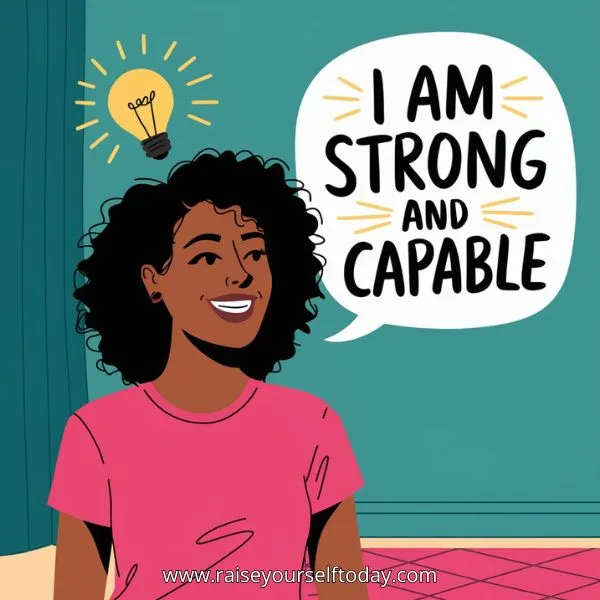Do You Realize That You’re Self-talking All the Time?

Let’s get real for a sec:
You know that voice in your head? The one that curls up in your chest like a storm cloud after you stumble over your words in a meeting, muttering, “They all think you’re a fraud.” The one that hisses “Who do you think you are?” when you dare to scribble a dream in your journal—like you’re a kid caught sneaking cookies before dinner.
For years, I thought that voice was me. That it was some unchangeable truth wired into my DNA. I’d lie awake at 2 AM, replaying its soundtrack: “Too loud. Too quiet. Too much. Not enough.” It felt like carrying a backpack full of bricks, convinced I deserved the weight.
But here’s what I’ve learned:
That voice isn’t you.
It’s a scared, exhausted little version of you—the one who got laughed at in third grade for mispronouncing “epiphany,” or who stayed up all night perfecting a project just to hear “Is this all you’ve got?” It’s been blaring a faulty alarm for decades, screaming DANGER at every shadow.
And guess what?
You can teach it to sing a new song.
Not with force. Not by slamming the door. But by handing it a blanket, a cup of tea, and whispering, “Hey… I see you. You don’t have to yell anymore.”
Let’s talk about how.
Why Your Inner Critic is Like a Bad GPS
Imagine your brain is a GPS. The inner critic? It’s the GPS that only gives directions like:
- “Recalculating… because you took a wrong turn AGAIN.”
- “In 500 feet, prepare to fail spectacularly.”
- “You are 0.2 miles away from being a fraud.”
Here’s the truth: That voice isn’t trying to hurt you. It’s trying to protect you—from embarrassment, rejection, or disappointment. But like a GPS stuck in 2003, it’s using outdated maps. Time for an upgrade.
Step 1: Catch the Critic (Without Judging Yourself for Judging Yourself)
Negative self-talk is sneaky. It hides in phrases like:
- “I always mess up.”
- “Why can’t I be like [insert Instagram highlight reel]?”
- “I don’t deserve this.”
Your mission: For one day, pretend you’re a detective collecting evidence. Write down every mean thing your brain says. No filtering, no shame—just observe.
My “aha” moment: I once caught myself thinking, “You’re such a mess”… because I forgot to buy toothpaste. Toothpaste. Turns out, my inner critic is dramatic.
Step 2: Talk Back Like a Sassy Best Friend
Once you’ve caught the critic, it’s time to talk back. But not with toxic positivity—compassionate honesty.
Example:
- Critic: “You’re going to embarrass yourself in that meeting.”
- You: “Hey, I’m nervous, but I prepared. Even if I stumble, it doesn’t define me.”
Pro tip: Imagine you’re defending your best friend. You’d never let someone bully them. So why let your brain bully you?
Step 3: Rewrite the Script (Pom-Poms Optional)
Negative self-talk thrives on vague, sweeping statements. Shrink them down and add facts.
Old script: “I’m terrible at my job.”
New script: “I felt overwhelmed today, but I finished three tasks. Tomorrow, I’ll ask for help.”
Bonus: Add a “Yes, and…” like an improv pro.
- “Yes, I burned dinner… AND I kept the kitchen from catching fire. Go me!”
Step 4: Befriend Your Inner Cheerleader (She’s in There, I Promise)
Your cheerleader isn’t some perky stranger—it’s you, just softer. Try these exercises:
A. The “What Would I Say to My Bestie?” Trick
Next time you’re spiraling, ask: “What would I tell my sister/best friend right now?” Write it down. Then say it to yourself.
My story: When I bombed a work project, I texted my friend: “You’re human! One mistake doesn’t erase your wins.” Then I realized… I’d never say that to me. Ouch.
B. The Compliment Jar
Grab a jar. Every time you do something kind for yourself (yes, even “I showered today”), write it on a slip. On bad days, pull one out.
Confession: My jar once held “Didn’t cry in traffic.” Progress, baby.
C. The “2-Minute Pep Talk”
Set a timer. For 120 seconds, say OUT LOUD:
- One thing you’re proud of.
- One thing you’re learning.
- One thing you forgive yourself for.
Warning: This feels weird. Do it anyway.
Step 5: Celebrate Tiny Wins (Like, Microscopic)
Your cheerleader grows stronger with praise. Did you…
- Silence the critic once today? 🎉
- Take a breath instead of spiraling? 🎉
- Eat lunch without calling yourself “lazy”? 🎉
That’s a win. Text a friend, do a dance, or just whisper, “Hey, I’m trying.”
When the Critic Comes Back (Because It Will)
Relapse is part of growth. Last week, mine yelled, “You’ll never figure this out!” during a tech meltdown. I cried. Then I laughed. Then I said:
“Okay, Critic. I hear you. But I’m choosing to focus on what I can control.”
Progress isn’t perfection. It’s showing up again tomorrow.
Your Cheerleader Starter Kit
Need tools? Here’s what’s helped me (and no, you don’t need to buy a thing):
- The Self-Compassion Break by Dr. Kristin Neff.
- $$: The Kindness Journal – Prompts to quiet the critic.
- Priceless: A notes app entry titled “Reasons I’m Rad.” (Mine includes “makes great toast”.)
🔗 Note: Links are affiliates, meaning I get coffee money if you buy. But your cheerleader journey is 100% free—promise!
Your Turn: Talk Back to the Mic
Your homework (if you want it):
- Name your critic: Mine’s “Karen.” She hates when I rest.
- Write one comeback: Next time Karen yells, “You’re failing!” say: “___________.”
Drop your critic’s name and comeback in the comments. Let’s drown out the noise together. 💖
Final Thought:

Let me say it again, just in case no one has today: You are not broken. You’re not “too much,” “too messy,” or “behind.” You’re a human being—a living, breathing ecosystem of stardust and stories—unlearning decades of crappy self-talk that society handed you like a cursed heirloom.
This journey? It’s not about silencing your inner critic forever (though wouldn’t that be nice?). It’s about learning to hold that voice gently, like a scared child who’s forgotten how to trust the light. Some days, your cheerleader will sound like a timid whisper: “Maybe I’m… okay?” Other days, it’ll roar: “I AM A FORCE OF NATURE, AND I DESPEСTE THESE $5 SWEATPANTS.” Both are victories.
Think of your mind as a garden. For years, you’ve been pulling weeds planted by others—teachers who shamed your questions, friends who mistook cruelty for humor, a world that profits from your self-doubt. Now, you’re planting new seeds: tenderness, curiosity, the radical belief that you deserve kindness—even on days you burn the toast, lose your temper, or binge Netflix instead of “adulting.”
Here’s the secret: Growth is never linear. Some mornings, you’ll wake up and water those seeds with affirmations. Other days, you’ll forget. You’ll trip over old patterns, mutter “I’m such an idiot,” and then—aha!—catch yourself. That moment of awareness? That’s the miracle. That’s the work.
So go easy on that beautiful, tangled, wildly capable brain of yours. It’s spent years navigating storms no one else can see. Celebrate the tiny shifts: the deep breath before reacting, the “I’m learning” instead of “I’m failing,” the courage to rest without guilt.
You are not here to become a perfectly pruned bonsai. You’re here to grow—wild, imperfect, and gloriously alive.
Now, go be kind to yourself. The world needs more humans who know their worth.
Read more from use :
5 Morning Habits of the Happiest People (Backed by Science!)
The 7-Day Gratitude Challenge: Transform Your Mindset in One Week




